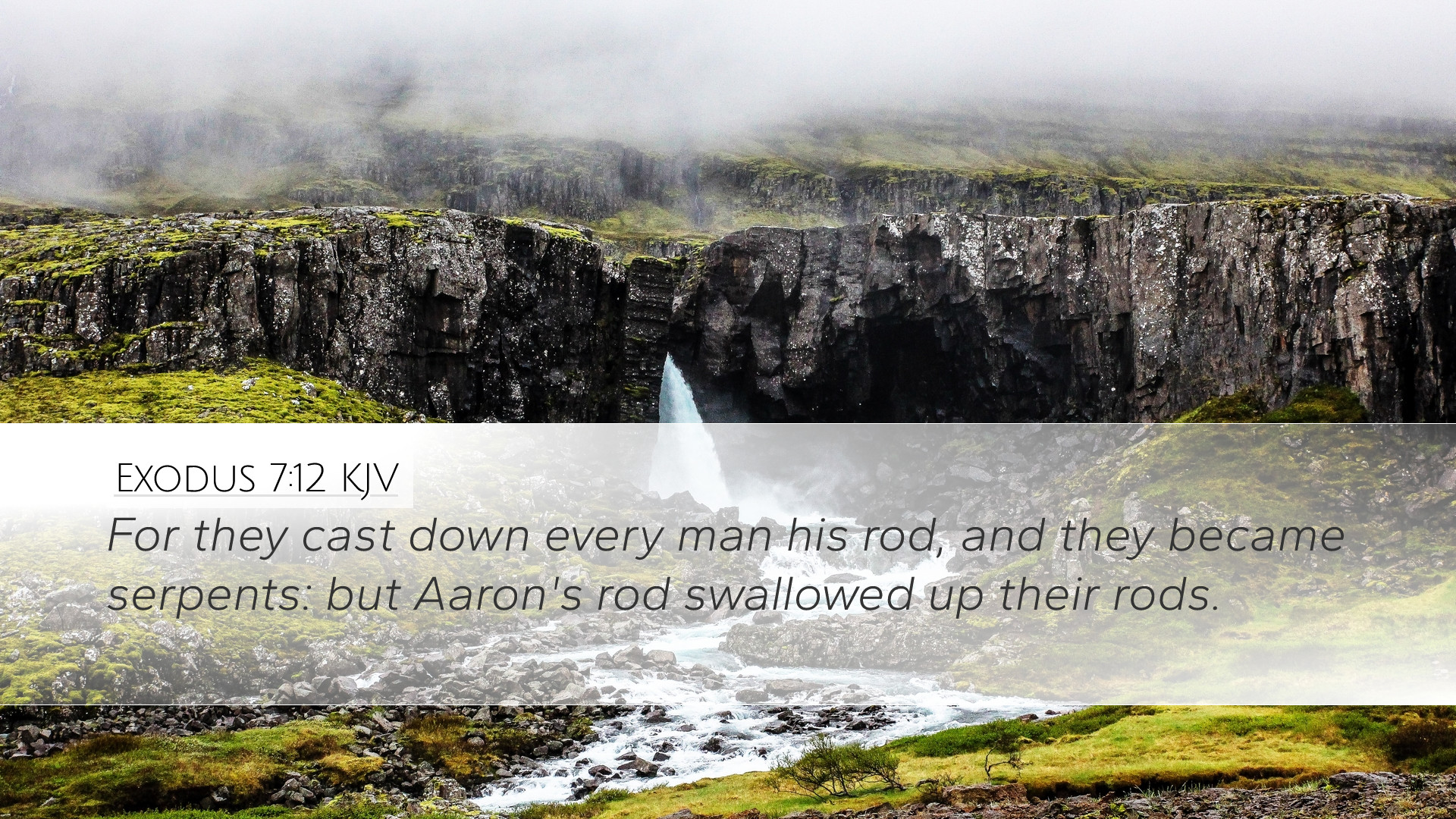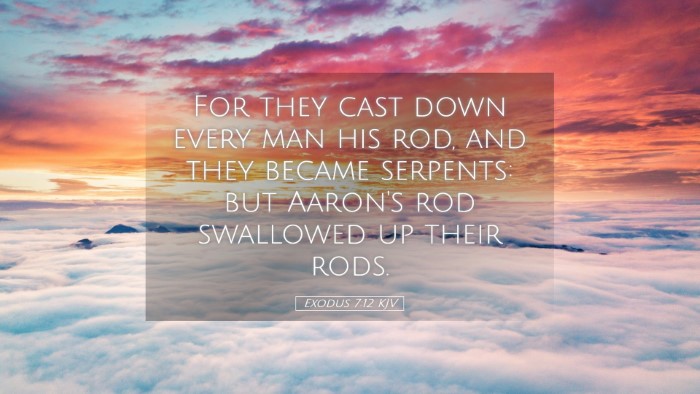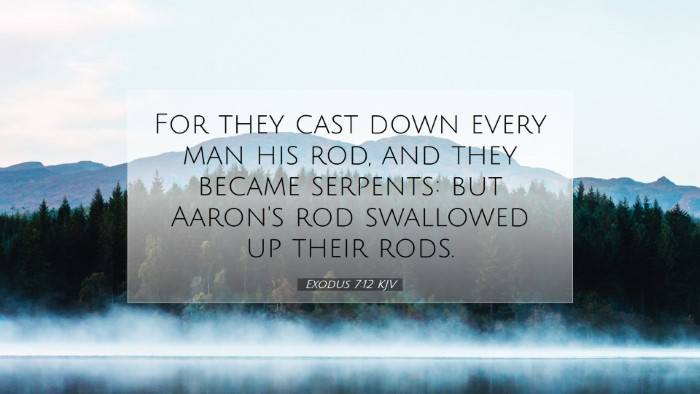Introduction
This verse is pivotal in understanding the early confrontation between Moses and Aaron and the magicians of Egypt. It showcases God's power over the Egyptian deities and the magic arts of Pharaoh's court. The theme of the serpent as a symbol of opposition to God unfolds within this verse, highlighting the clash between divine authority and human deception.
Commentary Insights
1. Contextual Background
Exodus 7 marks the beginning of a dramatic demonstration of God's power through Moses and Aaron. Pharaoh had reigned with a firm hand over the Israelites, and God instructed Moses to confront this tyranny. This moment signifies the commencement of God's judgment against Egypt and an assertion of His sovereignty.
2. The Rods of the Magicians
Matthew Henry notes that the magicians’ ability to turn their rods into serpents demonstrates the limits of human power when opposing divine will. The rods, symbols of authority and power, become instruments of deceit. Although they perform a trick, it is a mere imitation lacking true divine authority. Adam Clarke expands on the significance of the serpent, linking it to the Egyptian god, and suggesting that the magicians sought to bolster Pharaoh's confidence by replicating God's miracle.
3. The Superiority of Aaron's Rod
The ultimate act of Aaron's rod swallowing the magicians' rods symbolizes the true supremacy of God over false gods. Albert Barnes emphasizes that this act serves as a clear message: no matter how powerful human wisdom or magical arts may seem, they are utterly powerless before the Almighty. This event foreshadows the coming plagues, which will further reveal God's might and the futility of Egyptian gods.
4. Theological Implications
This encounter illustrates several theological principles:
- The Sovereignty of God: God's authority triumphs over human authority and supernatural mimicry.
- The Reality of Spiritual Warfare: The battle between divine forces and evil is manifest here. The magicians represent the forces that oppose God's mission.
- The Call for Faith: As God's servant, Moses must trust in God's plan, presented through signs and wonders.
5. Practical Applications for Faith Leaders
For pastors and theological students, Exodus 7:12 serves as a rich source of reflection:
- Dependence on God: Despite cultural distractions or competing ideologies, faith leaders should affirm that true power lies in God's hands. This verse calls for reliance on God's methods and timing.
- Discernment: The ability to discern the difference between divine miracles and counterfeit signs is crucial in ministry. Leaders should be equipped to guide their congregations in recognizing God's authentic work.
- Boldness in Confrontation: Like Moses, leaders are called to confront opposition with confidence in God's sovereignty. The spiritual journey requires courageous demonstrations of faith.
6. Conclusion
In summary, Exodus 7:12 is more than an account of a miraculous event; it is a profound statement about the character of God and the reality of spiritual authority. The incident reveals that while human opposition may arise, it ultimately cannot rival God’s omnipotence. Faith leaders, theologians, and scholars are encouraged to reflect on this verse as a reminder of God's immeasurable strength and the call to prioritize His authority above all else.


